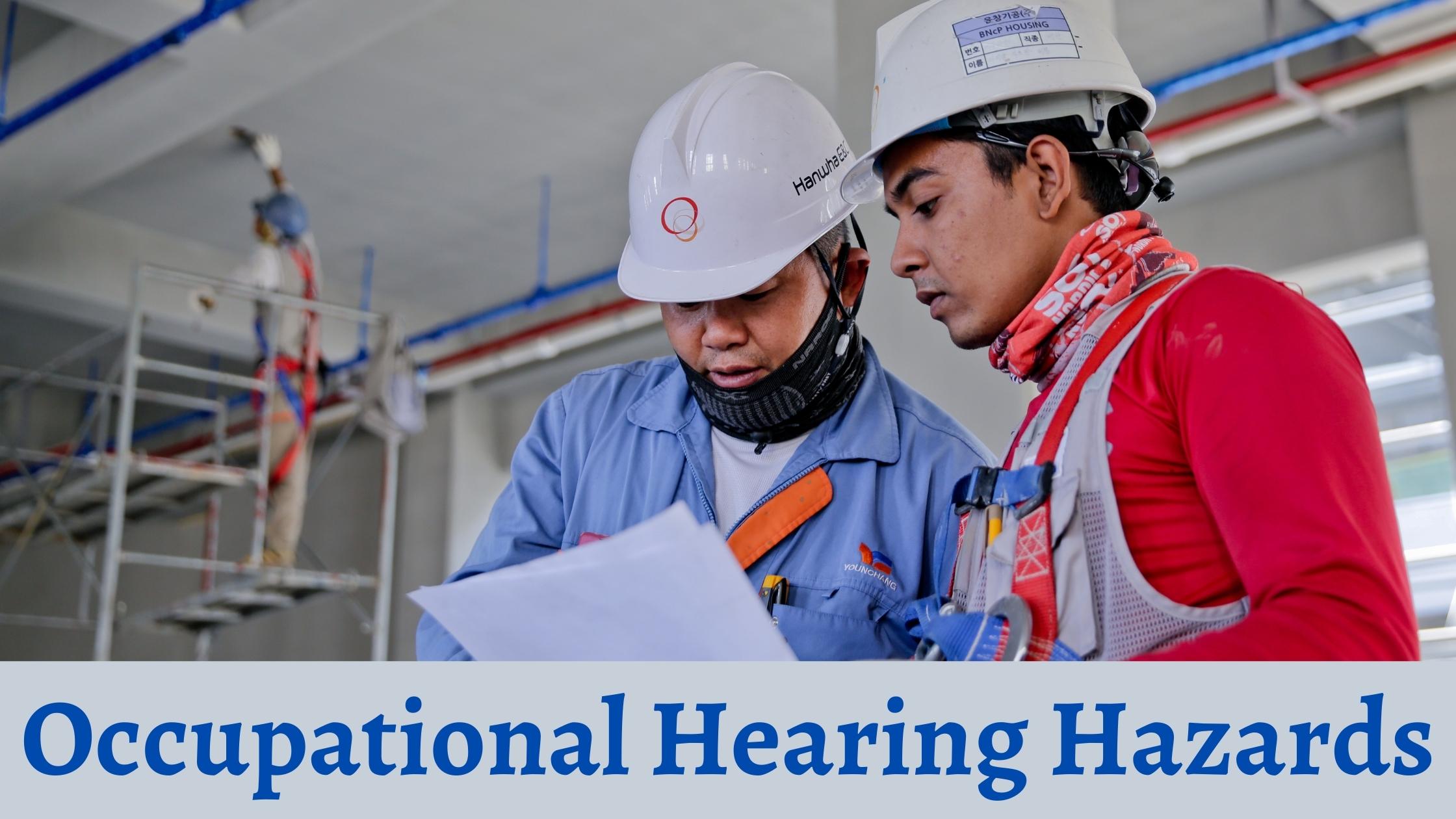Occupational Hearing Hazards

These days, we hear a lot about burnout among the American workforce. This burnout is a result of excessive mental and emotional stress and it is a very real issue. However, there are still workplaces that carry physical risk to their employees in the form of excessively loud noise environments.
How many Americans work in settings that carry risks for their hearing health? According to the Institution of Occupational Safety and Health, more than one million employees work in environments that risk their hearing health. Of those, around 17 percent experience hearing health issues, like hearing loss or tinnitus.
What is noise-induced hearing loss?
When we expose our ears to too-loud sounds, the result is noise-induced hearing loss. It can happen in an instant, in a circumstance like an explosion or accident, with extremely loud sounds at play. Typically, a person will quickly recognize hearing loss in the aftermath. But noise-induced hearing loss can also happen slowly and over time with noises that are above the danger threshold but do not cause recognizable hearing loss at the moment. Instead, after repeated exposure over years or even decades, the compounded result is debilitating hearing loss.
We measure units of sound in decibels. Volumes exceeding 85 decibels can harden the sensitivity cells of the inner ear. These cells are integral to the hearing process as they receive noise from the external world (collected by the outer ear) and translate it into sound information. From there, this sound information is sent along the auditory nerve to the brain. In the brain’s processing centers, meaning is made.
When these cells are damaged, they do not repair themselves. We can receive less noise and our brain receives less sound information. We hear less.
What is tinnitus?
In addition to noise-induced hearing loss, excessive noise can also cause tinnitus. Famously, musicians like Chris Martin of Coldplay and Pete Townshend of The Who have spoken publicly about their struggles with tinnitus.
Defined as hearing a constant ringing, buzzing, or whooshing (or other noises) in the ears when no external noise is present. Sufferers of tinnitus find this to be a debilitating condition, with reports of increased anxiety, stress, and depression.
Protections for workers regulated by OSHA
Thankfully, there are existing protections for workers in regards to hearing health within the workplace. Federal regulations are enforced by the Occupational Safety and Health Administration (OSHA).
They require that employees who work within a sound environment of 85 decibels be protected with a hearing conservation program. This might look like noise monitoring, education and training, hearing protection, and testing.
To help isolate and lessen the burden of noisy workplaces on employees, companies can employ interventions like sound barriers, providing hearing protection, and mandating more frequent breaks.
Leading occupations with hearing risk
It might surprise you to learn that two of the leading occupations with the riskiest hearing health environments are professional musicians and members of the military. Both professions have high rates of dangerous noise. A rock concert regularly clocks volumes between the 100-120 decibels range. Explosions, proximity to engines, and gunfire all have decibel averages between 100 and 170.
How to tell that your sound environment is too loud
There are easy, analog ways to tell if your workplace has dangerous levels of noise:
- If your coworker has to shout to be heard at a distance of 3 feet
- You feel pain or ringing in your ears during or after leaving work
- Your hearing is muffled after time spent working or you have temporary hearing loss
If you’re tech-inclined, you can turn your smartphone into a decibel reader. Download an app like Decibel X (iPhone and android) and use it to measure the decibel levels within your sound environment.
How to tell if you have noise-induced hearing loss
The symptoms of progressive noise-induced hearing loss can be subtle. First to be impacted will likely be speech clarity so that it seems as if everyone you’re talking to is mumbling. You might also notice yourself avoiding conversations with friends and especially on the telephone. Closed captioning might become a permanent setting on your television.
The only way to truly know if noise has damaged your hearing health is by scheduling a hearing consultation. Our team will lead you through the easy process of a hearing exam and we can use our better understanding of your current hearing health to get you on the road to your best possible hearing.
